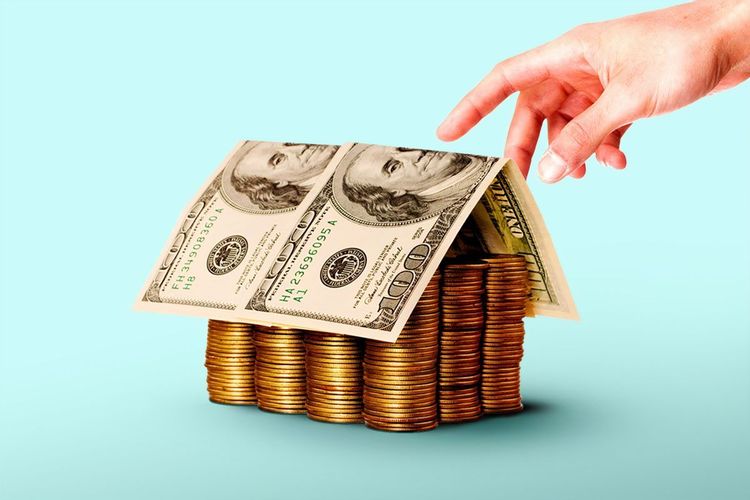Rent vs Buy: Understanding the Pros and Cons of Homeownership


by Tyler Forte
Let’s face it: Making decisions is stressful. Whether you’re picking an outfit, selecting a show on Netflix, or even starting a family, every choice takes its toll. Usually the bigger the decision, the more stressful it is to make. We understand your frustration. Few decisions are more significant than whether to buy or rent your home, so we’ve provided a guide to help take the stress out of that choice. We’ve taken the conventional assumptions about buying and renting a home and put them to the test. What we’ve found could transform your approach to choosing a place to live.
Conventional Wisdom #1: Buying A House Is A Good Long-Term Investment
Real estate equity has long been considered one of the crown jewels of the American investment portfolio. For the seventy years, or so, after the Great Depression, it lived up to this reputation. Nearly all types of residential real estate, in nearly all corners of the United States, consistently appreciated as an investment asset. Then 2008 happened. The housing market collapsed, and real estate values plummeted. For the first time in generations, Americans questioned real estate investment as an avenue to greater wealth.
Fortunately, this messy burst of the real estate bubble looks like an aberration for an otherwise sound investment asset. The housing market stabilized and residential real estate prices rebounded dramatically. The average American home value, after tumbling 33% in 2008, grew 50% by 2018. Even homeownership rates, which stagnated after the financial crisis, have climbed by 5% in the last five years. Nationally, housing prices have started to level off in the two years since this peak, but for much of Tennessee, and especially Nashville, the market continues to surge.
Savvy real estate investors look to buy residential property in places with robust job and population growth, and a shortage of housing options. Nashville checks all of these boxes. In a recent panel hosted by Zillow, real estate experts rated Nashville fourth, out of the largest 25 U.S. markets, for home buying activity and asset appreciation. The city’s housing prices have increased by 4.5% over the past year, and a recent market forecast suggests that this rate of appreciation will only climb in the coming months. In short, now is a great time to own residential property in Nashville.
However, not every market gets to be Nashville, and renters will be quick to tell you that there are more lucrative investment options than home equity. Many renters eschew a mortgage to free themselves for alternative investments, like stocks or CDs. These are certainly great ways to build wealth, but that doesn’t mean that they are great reasons to avoid a mortgage. Sure, a lender commands a large percentage of every mortgage payment, but the rest goes directly into owning your home. Practically, this functions as a savings account which will one day provide a heap of cash. In paying the sunk cost for a place to live, renters build equity for landlords instead of for themselves. The bottom line is if you have to pay for a place to live, you might as well invest in something that will one day pay you back.
Conventional Wisdom #2: Renting Is Cheaper Than Buying
Buying a home definitely requires a cash commitment that some are either unwilling or unable to make. After forking over a down payment (not to mention closing costs), homeowners face a monthly mortgage, property taxes, homeowners insurance, repair and renovations costs, even HOA fees. It’s a daunting cocktail of potential costs that many home seekers reject in favor of a simple monthly rent payment.
Despite this laundry list of fees, buying your home is often still the more affordable option. Zillow estimates that within four to five years of buying a house, homeowners actually spend less than renters in a similar living situation. One reason for this is that the dreaded down payment is not the crippling cost many perceive it to be. With current mortgage interest rates at only 3%-4%, buyers rarely feel the need to ante up 20% of the list price. Instead, they often opt for a down payment of only 3%, or even 0% if they qualify for a USDA loan. Even those who spring for a hefty down payment, though, usually still save more than renters by the five-year mark. This is mostly due to one factor: renting is downright expensive.
Landlords are in the business of making money, so they roll expenses like property taxes, homeowners insurance, and potential repairs into monthly rent payments. Renting a home in Nashville worth the median market value of roughly $290,000 will cost anywhere from $2,300 to $3,190 per month. This dwarfs the monthly cost of owning a similar property. Owning the same home on a 30-year fixed-rate mortgage after a 10% down payment requires only $1,800 per month, including property taxes and homeowners insurance. Paying so much less per month means it’s only a matter of time before owning a home becomes the cheaper long-term option.
Conventional Wisdom #3: Owning A Home Is A Hassle
As any jaded father-in-law will tell you, owning a home can be a headache. Seemingly anything can go wrong: The garage door won’t close, the foundation cracks, a pipe bursts; and you have to take care of it all. According to HomeAdvisor’s State of Home Spending report, the average homeowner spent $1,105 on home maintenance in 2018. One in three homeowners even grappled with an emergency home project that cost an average of $1,206. These expenses, and the work hours they require, often have homeowners longing for simpler times when all they had to do was call a landlord. When it comes to home maintenance, renting is definitely simpler (even though your landlord might require some badgering). Simpler, however, doesn’t always mean better.
Handling your own home projects can be a curse, but often it’s a blessing. Owning a home affords you the freedom to mold your environment to fit your lifestyle. For every dollar spent on maintenance, the average homeowner devoted seven dollars to home improvement projects in 2018. This suggests that homeowners embrace the freedom to truly make their home their own.
Renters are usually denied this luxury. Landlords rarely allow tenants to alter a residence. When they do permit improvements, they are always the ones in control of the process. Renters would argue that deference to a landlord is worth the simplicity and savings. For many homeowners, though, a little hassle is a small price to pay for a lot of independence.
Conventional Wisdom #4: Renting Is A More Flexible Housing Option
It’s generally true that renting a home is the best option for people who don’t want to stay in one place for long. Buyers often feel pressure to make it to the 5-year breakeven threshold before moving, while renters need only stay for the duration of their lease. Like any living situation, though, there are aspects of renting that can limit your flexibility.
Renters are still beholden to a lease agreement. Conventionally these agreements run for 12 months, and breaking them early can be tricky. Tennessee does require that landlords be proactive in finding a replacement renter so that you don’t have to pay for the full term of your lease. Still, for as long as it takes your landlord to find a qualified renter at the right price, you’re on the hook for the lost rent.
Compared to certain sticky rental situations like these, selling your house might actually be a more efficient way to get on with your life. In 2018 the average U.S. home spent only one to two months on the market before coming under contract. That window becomes even smaller in and around Nashville. RE/MAX reports that, in the same year, homes in Nashville and most of the surrounding suburbs came under contract within 24-32 days of hitting the market. This suggests that homeowners, especially in Nashville, might have more mobility than first thought.
Also, despite its upfront monetary commitment, owning a home actually allows for surprising financial flexibility. Fixed-rate mortgages keep housing payments stable for decades. The security of knowing future expenses empowers homeowners to craft feasible long-term plans. Renters, on the other hand, are at the mercy of a volatile market. Changes in property taxes, homeowners insurance, and overall demand can lead to unpredictable rent hikes that cripple long-term decision-making. It’s an ironic twist, but in some situations owning a home can actually enable, rather than threaten, one’s flexibility.
Conventional Wisdom #5: Owning A Home Benefits Your Overall Quality of Life
In the hierarchy of American infatuations, homeownership ranks somewhere between apple pie and crossing state lines to buy fireworks. It’s simply part of the American way, and the U.S. culture consistently communicates that, for so many abstract and unquantifiable reasons, life is just better when you own a home. It’s up to potential buyers to decide whether they buy the hype, but there is some indication that owning a home positively affects one’s quality of life.
According to a 2013 study by Brian McCabe of Georgetown University, homeowners are more likely than renters to participate in a civic organization and to engage in a neighborhood group. Other research suggests that homeowners are more willing to volunteer locally. Homeownership, then, might encourage people to become more active within their communities than renters. Research also indicates that homeownership has a positive effect on children as well. Children of homeowners tend to do better in school and be more social than children of renters. While other factors undoubtedly contribute to these trends, it’s hard to dispute that kids usually thrive in a more stable environment provided by owning a home. Ultimately, studies like these support the notion that homeownership, despite its difficulties, might just be the gateway to the good life.
There is no one-size-fits-all housing solution, and every resident has to decide what’s best for their own situation. Hopefully, this guide provides some clarity to your own decision-making process.
About Felix Homes
Felix Homes is where five-star service meets low commissions! To date, we've saved our clients $1,610,738 in commission fees and have earned 120 five-star reviews on Google!
How are we able to offer five-star service AND lower commission fees? It's simple:
- We're an independently owned brokerage – not a franchise which allows us to keep more of the commission we earn.
- By offering a lower commission, more folks want to work with us which means we close more deals. By closing more deals, we can pass more savings along to our customers!
Still not convinced? Read all about our low-commission mission here.
If you have any questions about the state of the market or the home buying/selling process, please feel free to contact us at contact@felixhomes.com or 615-354-5731.




